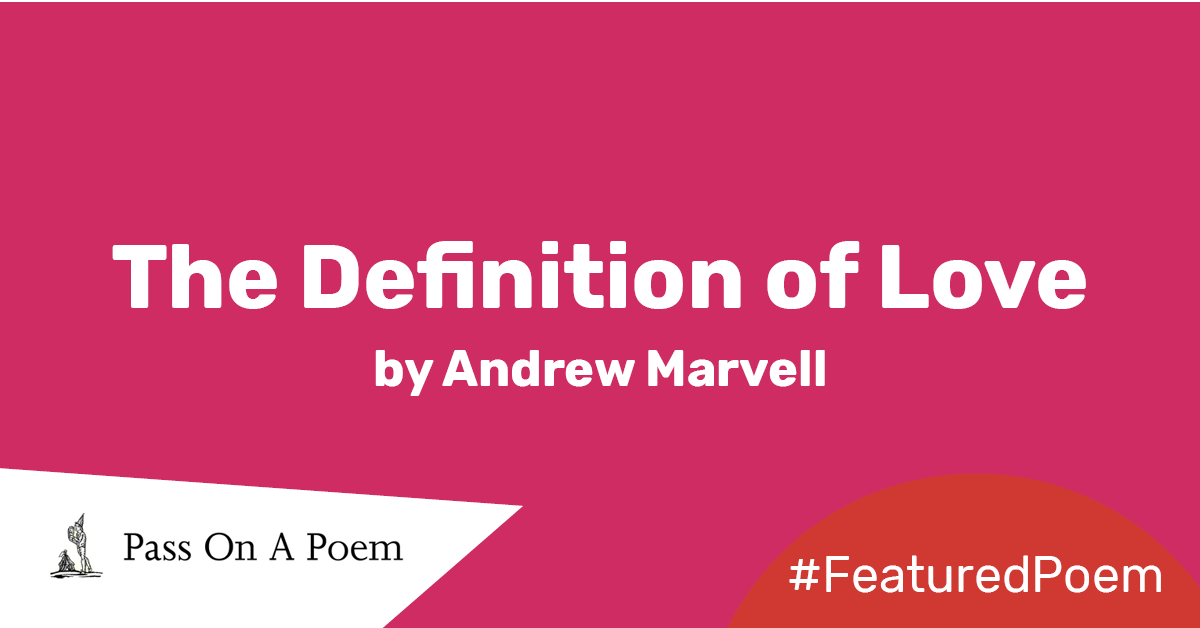Featured Poem: The Definition of Love by Andrew Marvell
This week's Featured Poem is The Definition of Love by Andrew Marvell, chosen by The Reader's Learning and Quality Leader, Tom Young.

The definition of ‘love’, you say? Sounds handy. But on first reading I realise I’m probably not going to get the kind of definition I was hoping for. I am interested in a love born of ‘Despair’ though, and there are a few other bits that stand out as immediately touching: ‘feeble hope’, and love as an ‘extended soul’, for example.
On second and third reading I think I can start to get my head around what’s going on. Love sprouting in unexpected places. Having a destination in mind that you feel you can never reach. Desiring what you can’t have. I love ‘Magnanimous Despair alone / Could show me so divine a thing’ and the pictures of the two lovers (or the lover and their object?) as distant poles, and later as parallel lines running alongside each other forever (a whole life?), but never meeting. It’s a rich poem, with some thoughts I relate to quite quickly, and others that will take some puzzling out.
I would really like to read this in a Shared Reading group, because firstly it doesn’t give up its secrets straight away, and secondly, once you give it some close attention, it seems to be describing a feeling that’s not just big, but common too - important and ordinary.
Share
Related Articles

Storybarn Book of the Month: Saving the Butterfly
This month, as part of Refugee Week (16-22 June), we've been taking a look back at one of our favourites…

June’s Stories and Poems
This month we are celebrating the natural world, and especially the many wonderful creatures that live within it, with June’s…

April’s Monthly Stories and Poems
Our year of Wonder with The Reader Bookshelf 2024-25 is coming to a close – though we won’t be putting…


